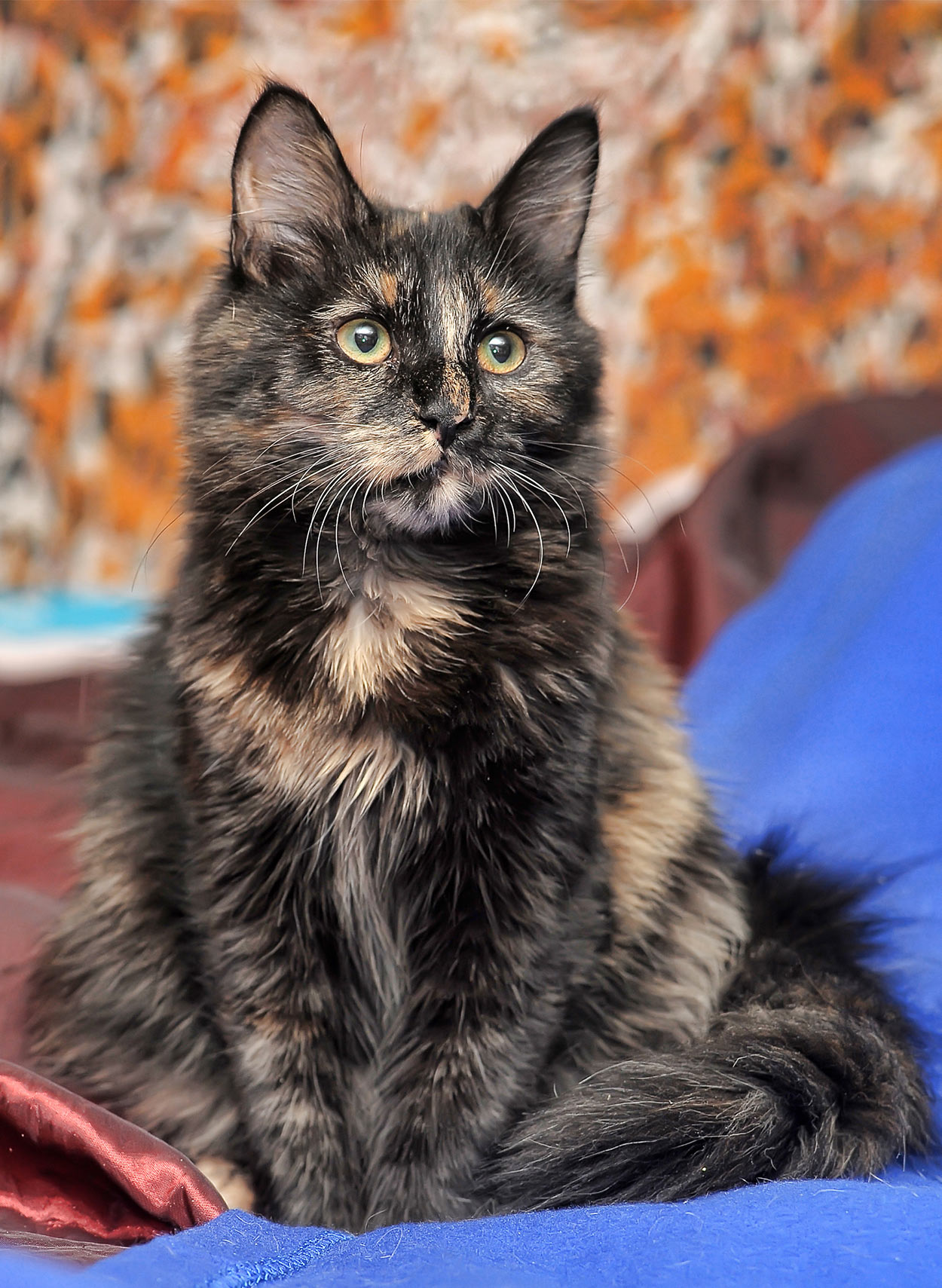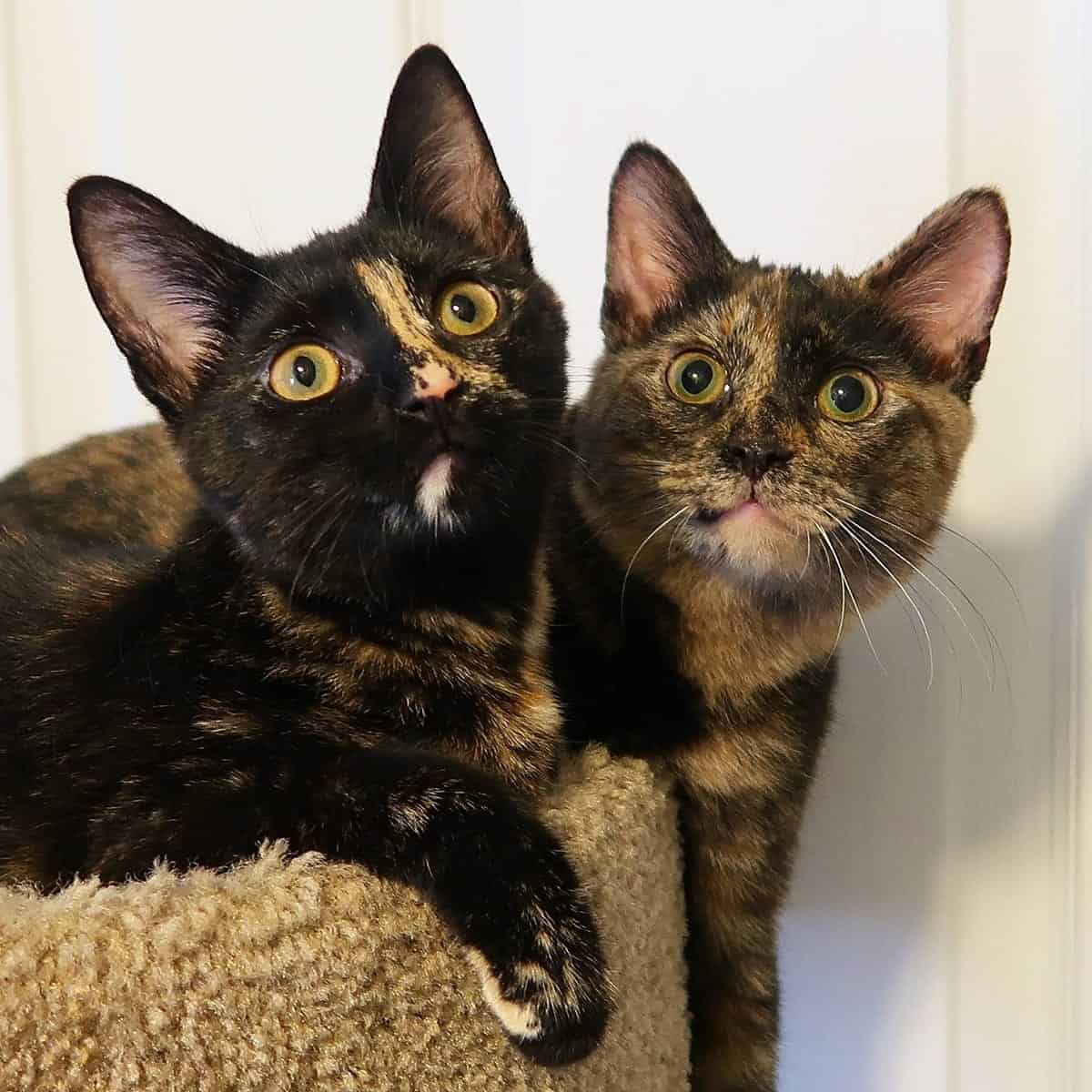Tortie Cat - Discover The Unique Charm Of These Colorful Felines
Tortie cats, with their striking coat patterns resembling the shell of a tortoise, have captured the hearts of cat lovers worldwide. These felines are not a specific breed but rather a unique color pattern that can occur in both purebred and mixed-breed cats. Their distinct orange and black swirls, sometimes diluted into cream and gray, make them stand out in any household. Despite their popularity, there's a lot more to torties than just their appearance. They have a rich history, fascinating genetics, and a personality all their own.
What makes tortie cats truly special is their genetic makeup. Most tortoiseshell cats are female due to the way the color gene is linked to the X chromosome. This biological quirk means that male torties are incredibly rare, occurring only about once in every 3,000 cats. If you ever come across a male tortie, you're witnessing something truly extraordinary. These cats are often sterile due to an extra X chromosome, making them even rarer and more intriguing.
Throughout history, tortie cats have been surrounded by folklore and superstition. Many cultures consider them symbols of good luck, with ancient Celts believing that male torties brought prosperity to homes. Japanese fishermen even carried these felines on their boats, believing they could ward off ghosts. Whether it's their unique coat patterns or their spirited personalities, tortie cats continue to enchant people all over the world.
Table of Contents
- What is a Tortie Cat?
- Why Are Most Tortie Cats Female?
- What Breeds Can Have Tortie Cats?
- Do Tortie Cats Have Unique Personalities?
- Tortie Cat Lifespan - How Long Do They Live?
- How to Care for Your Tortie Cat
- What Makes Tortie Cats So Rare?
- Do Tortie Cats Like to Cuddle?
What is a Tortie Cat?
A tortie cat isn't a breed but rather a description of a coat pattern. The name comes from the resemblance of their fur to the shell of a tortoise. Typically, their coats feature a mix of black and orange, though variations like cream, gray, and cinnamon can also occur. This pattern isn't limited to any one breed and can show up in both purebred and mixed-breed cats. The swirls and patches of color make each tortie cat truly one of a kind.
Why Are Most Tortie Cats Female?
The reason most tortie cats are female lies in their genetics. The gene responsible for the orange and black coloration is located on the X chromosome. Since females have two X chromosomes, they can express both colors. Males, on the other hand, have one X and one Y chromosome, meaning they can only be orange or black, not both. However, sometimes a genetic anomaly occurs, resulting in a male tortie with an extra X chromosome. These males are extremely rare and typically sterile.
What Breeds Can Have Tortie Cats?
Almost any cat breed can produce tortie cats. Some popular breeds known for having tortie patterns include American Shorthair, British Shorthair, Persian, Cornish Rex, Ragamuffin, and Maine Coon. Even mixed-breed cats can exhibit this striking coat pattern. The genetics behind tortie cats are fascinating because the same basic principles apply across different breeds, creating a wide variety of tortie looks.
Do Tortie Cats Have Unique Personalities?
Cat owners often joke about "tortitude," a term used to describe the bold, sassy, and independent nature many tortie cats seem to possess. While personality can vary widely depending on the individual cat, torties are often described as confident and spirited. They tend to be adaptable, making them suitable for families, singles, and seniors alike. Some tortie cats love to cuddle, while others prefer their independence. It all depends on the cat's unique temperament and experiences.
Tortie Cat Lifespan - How Long Do They Live?
Tortie cats generally live between 12 to 16 years, depending on factors like genetics, diet, and healthcare. Regular veterinary visits are essential for monitoring their health and catching any potential issues early. A balanced diet tailored to their age and activity level can also help ensure a long and healthy life. Just like any other cat, torties require love, care, and attention to thrive.
How to Care for Your Tortie Cat
Taking care of a tortie cat involves providing them with a nutritious diet, regular vet check-ups, and plenty of mental stimulation. Interactive toys, scratching posts, and climbing structures can help keep your tortie entertained and active. It's also important to give them lots of affection, even if they're a bit independent. Each tortie is different, so getting to know your cat's preferences and needs is key to a happy relationship.
What Makes Tortie Cats So Rare?
While tortie cats aren't rare in terms of overall numbers, male torties are exceptionally uncommon. The genetic factors that create the tortie pattern mean that most are female. Male torties occur only about once in every 3,000 cats, and when they do, they're usually sterile due to an extra X chromosome. This rarity adds to the mystique and charm of tortie cats, making them even more special in the eyes of cat lovers.
Do Tortie Cats Like to Cuddle?
Whether a tortie cat likes to cuddle depends entirely on the individual cat. Some torties are affectionate and enjoy snuggling up with their humans, while others prefer their independence. Their personalities can vary widely, just like any other cat. It's important to respect your tortie's preferences and let them set the pace for interactions. After all, every tortie is unique, and getting to know your cat's quirks is part of the fun.
Final Summary
Tortie cats are fascinating felines with a distinctive coat pattern that resembles the shell of a tortoise. They aren't a specific breed but rather a color pattern that can occur in both purebred and mixed-breed cats. Most tortie cats are female due to the way the color gene is linked to the X chromosome, making male torties incredibly rare. Tortie cats have been surrounded by folklore and superstition throughout history, with many cultures considering them symbols of good luck. Their personalities can vary widely, but many torties are known for their bold, sassy, and independent nature. With proper care, tortie cats can live long and healthy lives, bringing joy to their owners for many years. Whether you're looking for a cuddly companion or an independent spirit, a tortie cat could be the perfect addition to your family.

Tortoiseshell Cat: Over 30 Fascinating Facts About Tortie Cats

5 Fun Facts About Tortoiseshell Cats - Cole & Marmalade

Long Hair Tortoiseshell Cat: Facts, Pictures, Genetics & FAQs